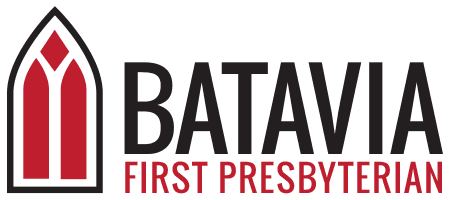Weekly Bible Devotional
“What Is Saving Your Life Right Now? Feeling Pain”
6-14-20
Scripture for Sunday: Job 3:25-26, 16:13, 38:1-7
25Truly the thing that I fear comes upon me,
and what I dread befalls me.
26 I am not at ease, nor am I quiet;
I have no rest; but trouble comes.”
13 his archers surround me.
He slashes open my kidneys, and shows no mercy;
he pours out my gall on the ground.
1Then the Lord answered Job out of the whirlwind:
2 “Who is this that darkens counsel by words without knowledge?
3 Gird up your loins like a man,
I will question you, and you shall declare to me.
4 “Where were you when I laid the foundation of the earth?
Tell me, if you have understanding.
5 Who determined its measurements—surely you know!
Or who stretched the line upon it?
6 On what were its bases sunk,
or who laid its cornerstone
7 when the morning stars sang together
and all the heavenly beings shouted for joy?
Notes on the Text:
This week we are looking at the practice of feeling pain as a pathway to healing and redemption. It seems counterintuitive to delve into one’s pain when it seems so negative. Yet, the example of Job is an excellent resource for us as we explore this practice. Job is known for his suffering. He is presented to us as a good man who lived in a fertile land. He was living the good life, but then things began to quickly go bad for him. He lost his children, his wealth, and his health. By chapter two, Job was confronted with the eternal problem of innocent suffering. Even his wife told him to curse God and die. The story book of Job does not end up giving a real explanation of why people suffer. What we end up with is a pattern for our response to find our way through suffering. This pattern can be a healing way for us individually but also as a nation and a world when we experience suffering. Here is the three-fold process:
- Lament: A large part of the book of Job is about lament. In Job 3:25-26, Job 16:13, Job speaks about his experience of pain to God and to his friends. His pain needed to be heard. He needed to put words to his pain. The question that Job raises to God about suffering was a form of lament. In his book When Bad Things Happen to Good People, Rabbi Harold Kushner writes that all those “why me” questions in the book of Job are not really theological questions at all but are cries of pain. They are laments. What Job needed from his friends was not their answers but their compassion. This is an important part of going through painful experiences. We can’t move on to the happy stuff right away without doing our work of feeling the pain. The deeper the pain, the greater the lament needs to be. We know that when someone we love dies, we have to lament the loss. We have to take time to feel and express our feelings. We can choose not to do that, but the pain is never healed if we don’t lament. When someone we love is hurt, we have to hold the space for them to speak about their pain without rushing to fix it. We may even need to lament with them. This applies to both physical and emotional pain. We need others to lament with us when we are hurt. Job’s friends try to hush him and give him easy answers. They present the traditional view that Job must have sinned and therefore deserved his suffering. They berate him to confess his sins, although they themselves could not think of what sins he needed to confess. It made them uncomfortable to hear Job lament. When someone cries in front of us, we get uncomfortable. When we ourselves cry, we feel uncomfortable. But there is so much power and courage in holding such sacred moments of pain and tears without judgment or fear.
On national or global levels, we have a hard time with lament because it sounds unpatriotic and it makes us uncomfortable. With issues like racism, poverty, sexism, violence, or a pandemic, it is hard for us to hold the space for lament. To hear the voices of those who are suffering makes us uncomfortable, but it is important. Holding the space for our Black brothers and sisters to lament and express their pain is part of the healing work we have to do, no matter how uncomfortable or clumsy we may feel. Hearing the stories of those who have lost loved ones or their health to the pandemic is essential to our healing as a nation. Lament is essential to healing. The power of lament is that it is not an intellectual exercise. It is about going deeply into the pain and letting it be. It is ultimately about becoming authentic and real in our lives.
- Listening: Job had to listen to God’s voice in the midst of this suffering. He listened even when God’s answer didn’t seem to make a lot of sense. In fact, it seems that God answers Job’s questions with more questions. (Job 38:1-7) “God does not give Job a clear answer, but instead, God questions Job’s perspective on God’s role in suffering and life. God reframes the question about innocent suffering to enlarge Job’s limited human understandings and need for a logical explanation of cause and effect. God reminds Job that life is not simple and that the world’s mysteries are larger than any human perspective. The key to faith for Job was not regaining his sense of control or his understanding of the reasons behind his innocent suffering. It was instead about a change in his perspective so that he could focus on his relationship with God instead of trying to control the circumstances of his life. Life’s mysteries cannot be solved with simple explanations. Only the soul is capable of navigating times of great pain because the soul relies on grace instead of getting fixated on logic and control. Part of the work during times of pain is listening to a higher wisdom. Paying attention to the larger frame of life reminds us that even if all seems to be lost, that is never the end. There is always potential for new life, even if it is on the other side.
- Love: Job leans into his pain, listens to God, and then remains in love with God and allows God to love him. With this folktale of Job, the people of ancient Israel were being challenged to grow in their understanding of God. They were invited to let go of their worn-out belief that God punishes people for their sins. In its time, the book of Job was a very radical message about God’s love. This became clearer to people of faith later in the person of Jesus. He showed that God walks the journey of suffering with us and loves us into wholeness. God never gives up on us. God was a faithful companion to Job in his suffering and is a faithful companion to us. The only power strong enough to get us through tough times is that of love. Finding ways to ground ourselves in love is essential to our wellbeing. Pain has a way of stripping away all of our illusions about what is important in life. When we go through a time of pain, we remember the primacy of love in our lives.
For Reflection:
Wherever you are today on the spectrum of pain personally or globally, the invitation is to follow the threefold pattern of lament, listening, and love. There is no magic to the order because sometimes we have to feel loved before we can trust to lament and lean into our pain. Also, it is good to remember that this process is not always quick, especially when the suffering is overwhelming. Even though our instinct is to look away from the suffering of the world, it is important that we practice feeling the pain with the help and grace of God. In this moment of collective pain, what does this pattern of lament, listening, and love look like for you and for our world?
Kindness
by Naomi Shihab Nye
Before you know what kindness really is
you must lose things,
feel the future dissolve in a moment
like salt in a weakened broth.
What you held in your hand,
what you counted and carefully saved,
all this must go so you know
how desolate the landscape can be
between the regions of kindness.
How you ride and ride
thinking the bus will never stop,
the passengers eating maize and chicken
will stare out the window forever.
Before you learn the tender gravity of kindness
you must travel where the Indian in a white poncho
lies dead by the side of the road.
You must see how this could be you,
how he too was someone
who journeyed through the night with plans
and the simple breath that kept him alive.
Before you know kindness as the deepest thing inside,
you must know sorrow as the other deepest thing.
You must wake up with sorrow.
You must speak to it till your voice
catches the thread of all sorrows
and you see the size of the cloth.
Then it is only kindness that makes sense anymore,
only kindness that ties your shoes
and sends you out into the day to gaze at bread,
only kindness that raises its head
from the crowd of the world to say
It is I you have been looking for,
and then goes with you everywhere
like a shadow or a friend.
Prayer by Luis Espinal, Jesuit priest killed in Bolivia in 1980:
“Train us, Lord, to fling ourselves upon the impossible, for behind the impossible is your grace and your presence; we cannot fall into emptiness. The future is an enigma, our road is covered by mist, but we want to go on giving ourselves, because you continue hoping amid the night and weeping tears through a thousand human eyes.”


